Can You Drink Tap Water in Spain? (Get The Facts)

If you’re about to head out on your big Mediterranean vacation and know that it’s important to stay hydrated, it’s always a good idea to consider: can you drink tap water in Spain?
I live in Spain, and I’ve learned that when it comes to tap water, it really depends on where you are. In some cities, the water’s great straight from the tap, but in others, having a refillable water bottle with a filter can be a game changer.
Want to know which places are which? Stick around, because I’ve got all the info you need to drink water worry-free while you’re exploring the beautiful sights of Spain.
Key takeaway: Tap water in Spain is safe to drink but the taste can be pretty terrible, honestly (especially in places like Barcelona and Valencia).
So here’s what I use to filter the tap water in Spain:
- This Brita filtered water bottle for drinking water on the go. It does a seriously good job of improving the taste of the tap water here, and it’s insulated too, which means your water stays cool.
- This Waterdrop stainless steel faucet filter in my kitchen. It’s not just easy on the eyes (which is important when it’s sitting out on your bench!) but does a great job making the water taste better.
- This Philips Shower Filter in my bathroom for helping to reduce the stuff that might not be too great for your hair and skin. It’s genuinely resulted in a noticeable difference, especially for my hair.
Can you drink tap water in Spain?
Yes, you can drink the tap water in Spain. It’s generally considered safe and meets international standards, with Spanish tap water going through rigorous filtration and quality checks before reaching your tap. You’ll find the taste and mineral content can, however, vary by region.
That is, some people may find the taste differs from what they’re used to – Barcelona in particular is known for its poor tasting tap water, but places like Valencia aren’t great either. This is often due to the mineral content and isn’t an indicator of poor quality.
Also, the tap water in some regions of Spain can be quite “hard,” meaning it has high mineral content. Some people dislike this or find it affects their hair and skin – personally, I’ve found the hard water in Valencia, where I live, to make my hair very dry, which is why I use this Philips shower filter which I mentioned above.
(Although this won’t matter if you’re just visiting Spain rather than moving here, as you definitely don’t need something like this when only here for a short period of time.)
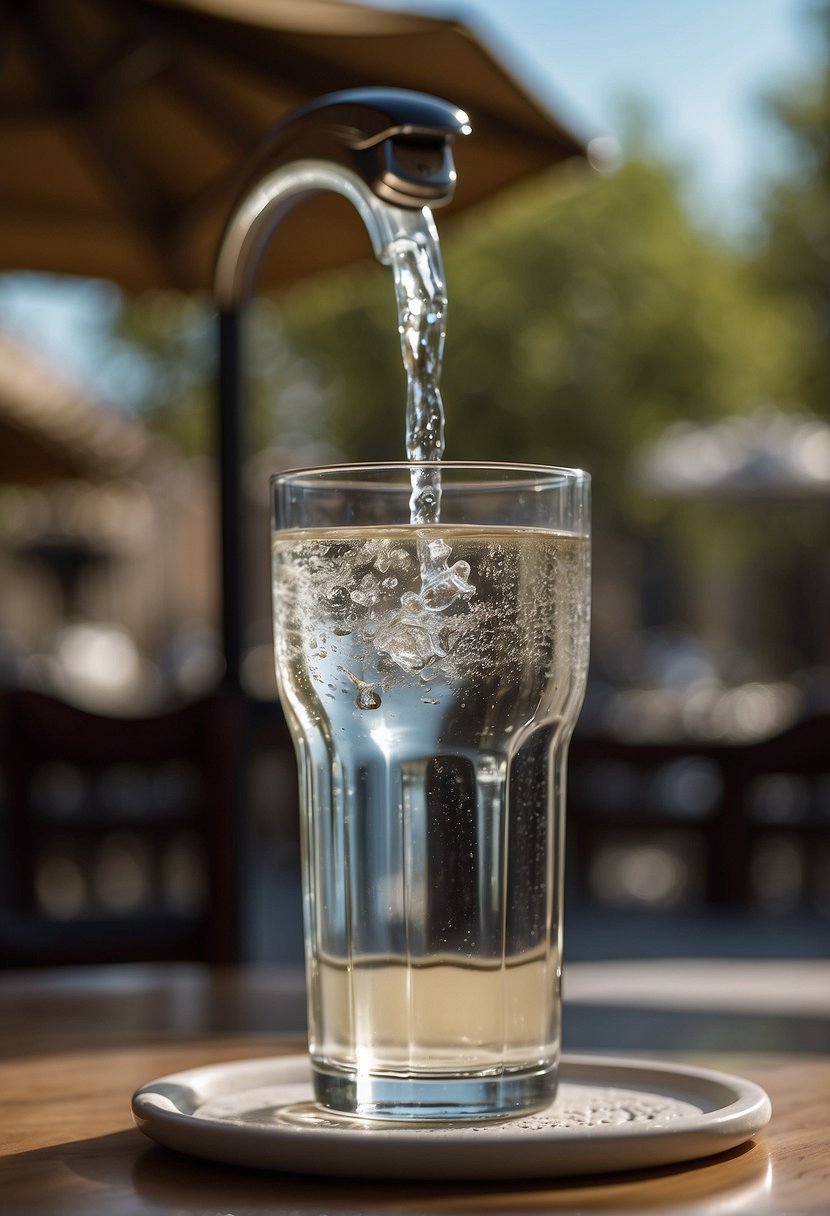
Bottled water is widely sold if you prefer it – but please do think of the environmental impact of this choice. This is exactly why I’d strongly recommend that you instead consider bringing the Brita filtered water bottle with you, so you can simply refill it with tap water as you explore Spain.
In fact, when you’re out and about on hikes or meandering through cities, you’ll come across drinking fountains dotted throughout public areas. This water is perfectly safe for consumption, and there are even designated taps for dogs so every family member can quench their thirst.
And if you’re looking for a nearby fountain, there are plenty of sources to locate these. For example, when you’re in Barcelona, there’s a handy app, Fonts BCN, to guide you.
What is the best water filter for Spain?
When choosing a water filter in Spain, you’ll want to consider one that efficiently removes common contaminants found in local water supplies. For me, Brita has the best water filters on the market overall for different household sizes and water usages.
That said, depending on your needs, different products are going to suit you better
For a personal, day-to-day water bottle, I love this Brita filtered water bottle. It does a great job of clearing out that terrible tap water taste you find in Spain sometimes – and you water stays cool thanks to the insulation in the bottle.
Not to mention that it’s BPA-free with a neat built-in straw, which is just icing on the cake!
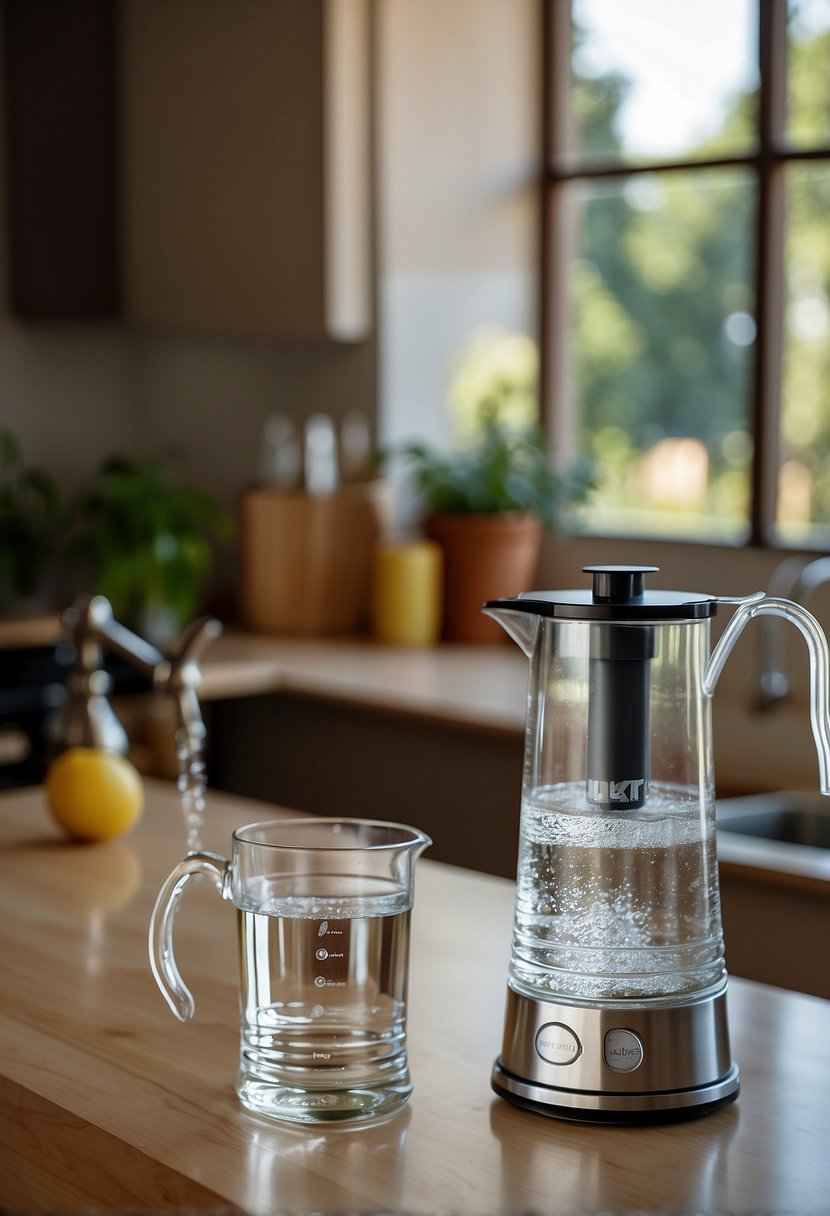
This bottle is going to be more than enough if you’re planning to only visit Spain. But if you’re coming for a longer period, you also might want to consider getting any of the following:
For having a water pitcher on hand in your fridge, I definitely recommend this Brita water filter pitcher. It’s also BPA-free, which is great, and despite its impressive water capacity, it’s actually really light – which I personally always appreciate compared to trying (and failing…) to pour something heavy.
For having drinking water directly from the kitchen, I’ve installed this Waterdrop stainless steel faucet filter. It’s not just easy on the eyes (which is important when it’s sitting out on your bench!) but does a great job making the water taste better.
This filter uses a 5-stage system, getting rid of stuff like sediment, a good chunk of chlorine, and even some heavy metals. The result is cleaner and fresher tasting water right from your tap.
When it comes to showering, I’ve noticed a real difference in my hair and skin after installing this Philips shower filter.
It’s not something tourists will need as you’re not here long enough for this to be a problem. But, for me, after a few months of living in Valencia, my hair and skin really struggled with dryness and breakage, in the case of my hair.
This filter, with its three-step system, helps reduce the stuff that might not be too great for your hair and skin. It’s genuinely resulted in a noticeable difference, especially for my hair.
If you want to pull out the big guns, I know several people who are very happy with this reverse osmosis water system that they’ve installed in their homes. For me, the water filters above have been enough (and I’m not a huge fan of the water wastage involved in these systems), but others I know have loved what this has done to their water, even if it’s a bit more expensive.
How do you ask for tap water in Spain?
To request tap water in Spain, you need to ask for “agua del grifo”. Remember, it’s common in Spain for servers to provide bottled water unless you specify that you want tap water. In fact, if you ask for tap water, they legally have to provide it to you.
Some ways to ask for tap water in Spain include:
- “Nos pones una botella de agua del grifo, por favor?” – Could you bring us a bottle of tap water, please?
- “Me traes un vaso de agua del grifo, cuando puedas?” – Could you bring me a glass of trap water, whenever you can?
- “Para mí, solo agua del grifo, por favor” – For me, just tap water, please (for when you’re asked what you’d like to drink)
You can mix and match these depending on your group (e.g. “nos” for a group or “me” for just you) and whether you want a bottle or glass.
Some of you may have noticed that these verbs (pones, traes) are in the “tú” form rather than the more formal “usted”. It’s super common in Spain to use “tú” in bars and restaurants and no one will take offence if you use it.
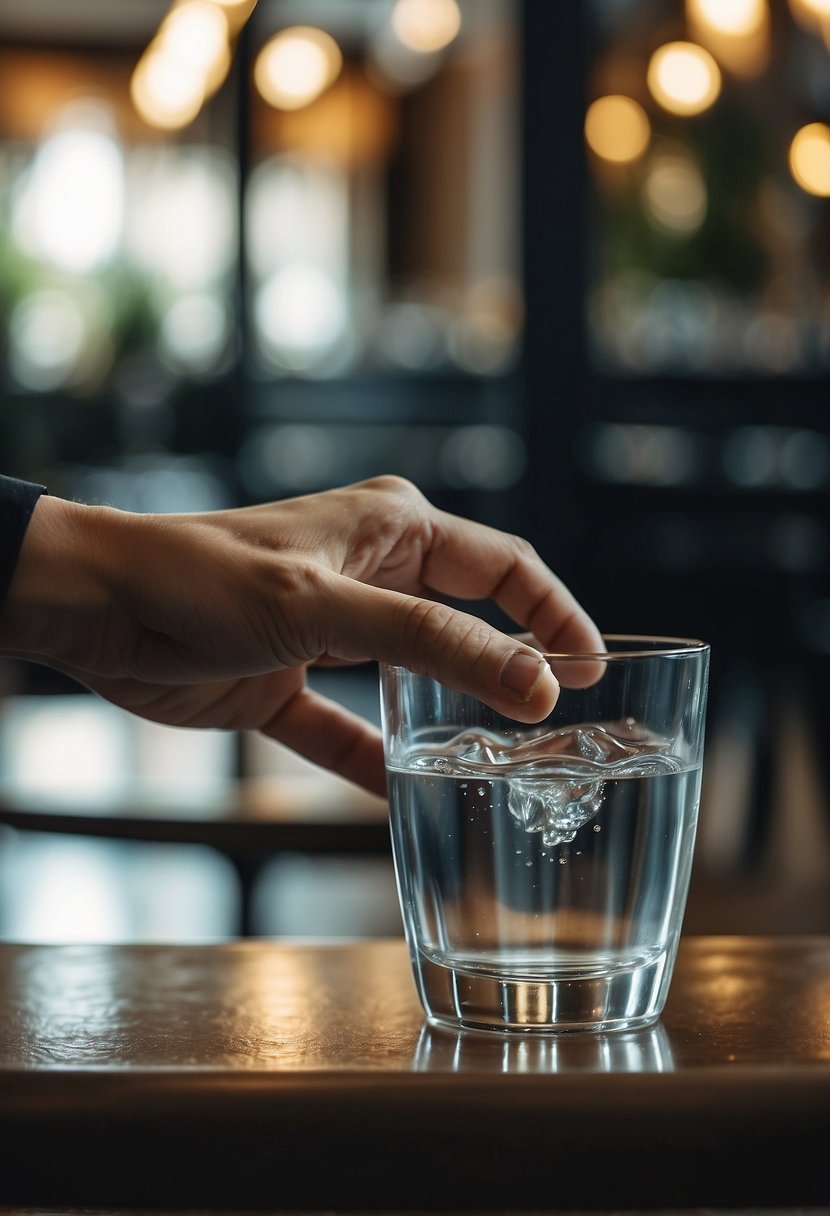
Instead, the politeness comes from the fact that these are phrased as questions as well as the extra parts on the end (por favor, cuando puedas).
You’ll also notice that these aren’t phrased like in English, in the sense that they don’t directly translate to “I would like…” or “Can I have…”. It’s not usual to order in that form in Spain, as the focus is typically on what you want the person you’re speaking with to do.
Here are a few other phrases you might like to know:
- “Agua mineral” – mineral water (which is what most places will assume you want if you only order “agua”)
- “Sin gas” – without gas (if you prefer still water)
- “Con gas” – with gas (if you prefer sparkling water)
Should I drink tap water or bottled water in Spain?
You should drink tap water in Spain as it’s safe and meets international standards. The taste and quality may vary depending on the region, as some areas have harder water than others. While bottled water is available, it’s more expensive and has environmental issues.
In Spain, the tap water is perfectly fine to drink. It’s treated and is subject to strict quality control processes mandated by the European Union.
As mentioned earlier, in some parts of the country, the tap water might have a different taste due to the mineral content, but it’s still safe to consume. If the taste is too much for you – and, honestly, I don’t blame you in some parts (hello, Barcelona…) – bring a water bottle with a filter and you’ll be good to go.
It’s true that locals often prefer bottled water due to personal taste or habit. This is, however, shifting somewhat as more people become aware of the environmental impact of their choices, not to mention due to the high cost.
Do Spanish locals drink tap water?
In Spain, many locals drink tap water without any concerns. It’s safe in most areas and often meets strict European Union standards for drinking water. In some cities, like Madrid, you might even find the tap water tastes quite good due to local sources.
However, the preference for tap water can vary by region. Here’s a brief breakdown:
- In major cities like Madrid and Barcelona, tap water is generally consumed regularly by residents. The mountainous sources supplying Madrid provide particularly high-quality water, although as the taste in Barcelona isn’t very good, some locals do choose to get bottled water there.
- Coastal areas, such as the Costa del Sol, might have slightly different tasting water due to desalination processes, which can affect flavor and mineral content. Still, it remains safe to drink.
- Rural areas could have variable water quality (although this includes that some have excellent water coming straight off mountain sources). Locals in these regions might prefer bottled water or have filters installed, depending on individual town supply systems.
You’ll often notice that in restaurants, waiters serve bottled water by default. This is primarily a cultural habit rather than a necessity, as tap water is still typically available upon request.
(In fact, there’s actually a recent law that says that restaurants have to give you tap water if you ask for it. It’s great for saving money and for environmental concerns.)
In summary, you can confidently drink tap water in Spain just like the locals do, although taste and preference might lead some to choose
Is tap water safe to drink in Spain?
Yes, you can safely drink tap water in Spain as it is treated to meet the European Union’s strict safety standards. However, the taste and mineral content can vary by region, which might affect its palatability for some people. This does not, however, affect the quality of the tap water.
You wouldn’t be blamed for thinking that the bad taste of the water in certain areas of the country means that it’s problematic to drink. However, this isn’t the case at all – Spanish tap water is safe to use for drinking, cooking, washing and more.
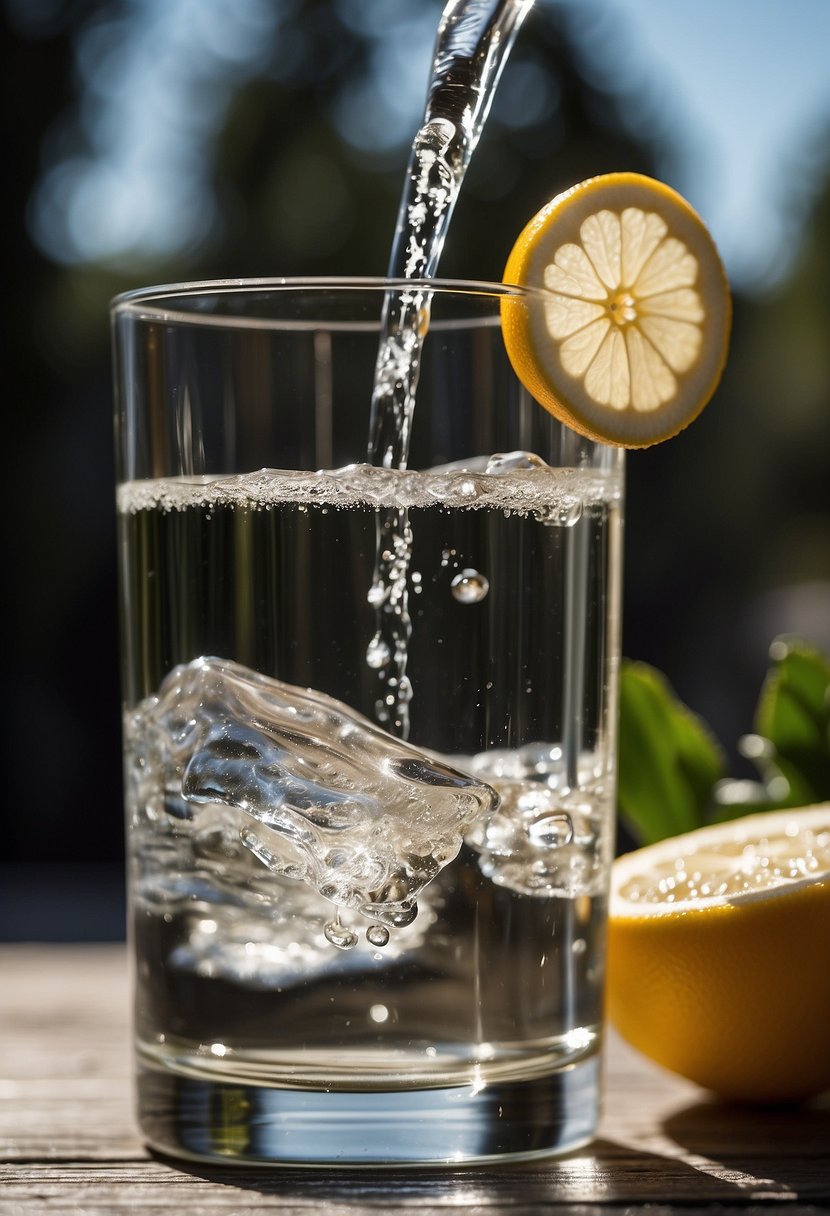
Is tap water safe to drink in Madrid?
Yes, tap water in Madrid is safe to drink. The city’s water supply and sanitation infrastructure are highly developed, ensuring clean drinking water that also tastes great. Madrid’s tap water comes from the Sierra de Guadarrama and is treated to meet European Union standards.
The water in Madrid is known for its high quality. It’s subject to rigorous quality control tests that monitor everything from source to tap. This ensures that the water you drink is free of contaminants and safe for consumption.
Madrid’s tap water is not only safe but also tastes good, making it preferable for many residents and tourists. While buying bottled water is an option, it’s generally unnecessary unless you truly prefer the taste or are in areas where the plumbing is old and may affect water quality.
Remember, Madrid’s tap water is eco-friendly and cost-effective. By choosing tap water, you’re also reducing plastic waste from bottled water.
Can you drink tap water in Barcelona?
Yes, you can drink the tap water in Barcelona. It’s safe to consume and meets the European Union’s water standards. However, you might find the taste a bit different from what you’re used to due to its high mineral content.
Barcelona’s water treatment system is modern and efficient, ensuring that contaminants are removed and the water is disinfected. The city receives most of its water from the Llobregat and the Besòs rivers, and it undergoes a thorough purification process.
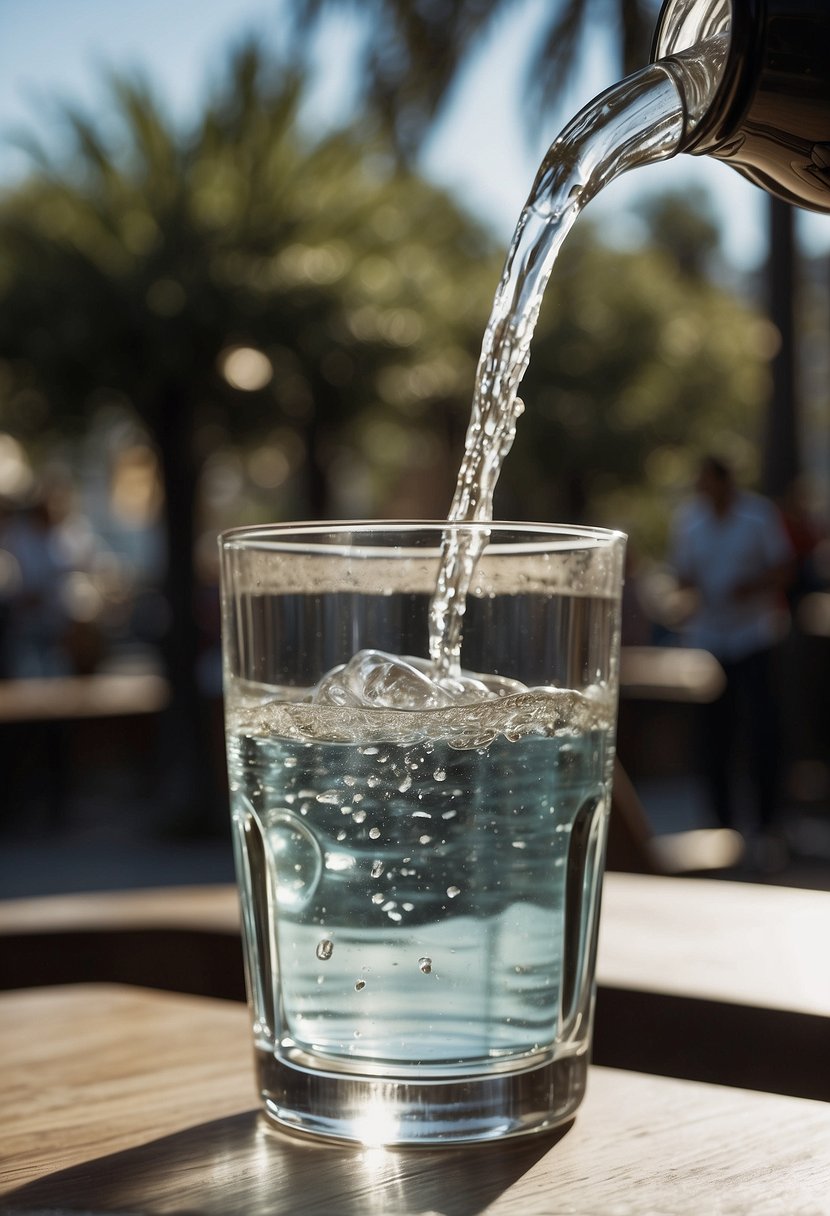
While the tap water in Barcelona is potable, many locals and visitors prefer bottled water because of the taste. The difference in taste is due to the minerals and the treatment process, not because of any safety concerns.
If the taste doesn’t bother you (or if you get a filter to improve the taste), drinking tap water in Barcelona is definitely the more cost-effective and environmentally friendly option.
Can you drink tap water in Malaga?
Yes, you can drink tap water in Malaga, as it’s safe and meets the European Union’s water quality standards. However, you might find it tastes a bit different from what you’re used to because of the mineral content.
Tap water in Malaga comes from local mountain sources and is treated to be safe for drinking. The city’s water supply and sanitation infrastructure are modern and efficient, ensuring that water quality is maintained from source to tap.
Despite its safety, some residents and visitors prefer bottled water due to the taste preference.
Keep in mind that tap water’s taste and quality can vary slightly throughout the city. It’s always a good idea to stay hydrated, especially in the warm climate of Malaga, and tap water is a cost-effective and eco-friendly option compared to constantly buying bottled water.
If you’re unsure, consider using a filter or try a few different areas’ water to find the taste you prefer.
Can you drink tap water in Ibiza?
Yes, you can drink tap water in Ibiza, but it might not taste as good as bottled water due to the desalination processes it goes through. Many visitors prefer to buy bottled water for taste reasons. However, the tap water is safe for consumption and meets all European Union standards.
While the tap water in Ibiza is potable, the use of desalination plants can give it a different taste than what you’re accustomed to. If you’re sensitive to changes in water flavor, you might want to stick with bottled water or, better yet, get a water bottle with a filter.
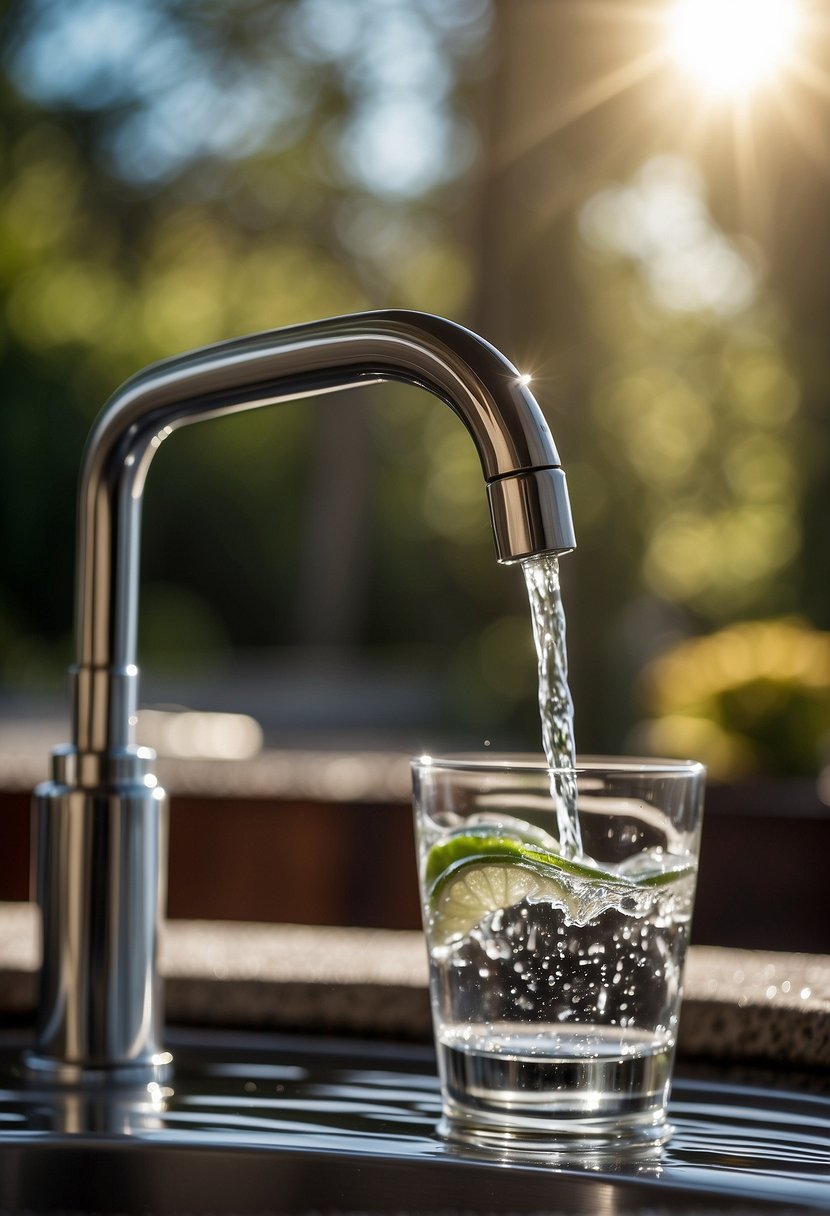
Restaurants and bars often serve drinks with ice made from tap water, which is also safe.
Bottled water is widely available for purchase if you decide that’s your preference. You’ll find it in supermarkets, convenience stores, and at tourist attractions. Prices vary, but they’re generally reasonable.
Remember, though, if you choose that options, that it pays to stay environmentally conscious. If you do opt for bottled water, consider purchasing larger containers rather than multiple small bottles to reduce plastic waste.
Reusable water bottles with built-in filters can provide a compromise between convenience and taste, allowing you to fill up from the tap while on the go.
Can you drink tap water in Seville?
Yes, you can drink tap water in Seville. It’s generally safe to drink and meets the health standards set by the European Union. However, while safe, some visitors may find the taste and hardness of the water different from what they’re used to.
Seville’s tap water originates from the nearby rivers, and it is carefully treated before reaching your tap. The water undergoes stringent quality controls to ensure its safety for consumption.
Moreover, the city’s water supplier, EMASESA, manages the water treatment process to maintain its potability.
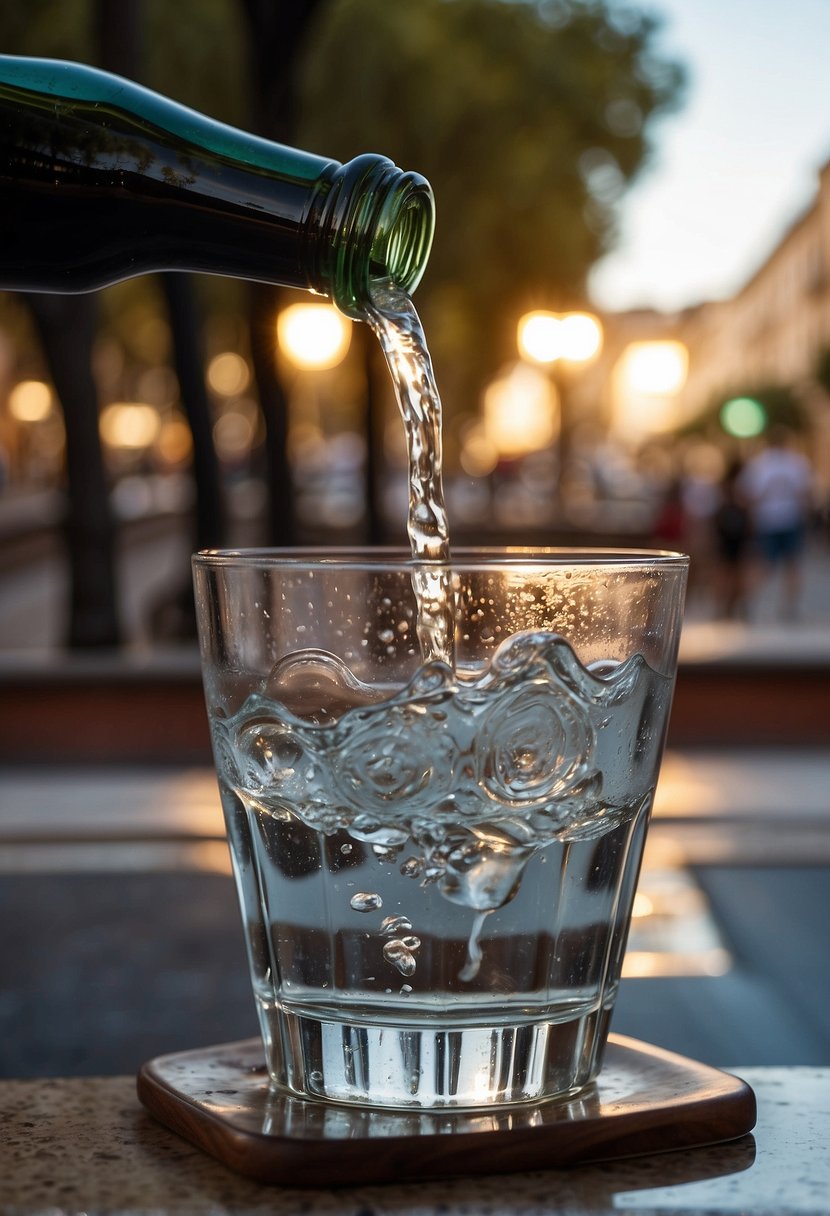
Despite its safety, the tap water in Seville is known to be quite hard due to its high mineral content. This means the water has higher levels of calcium and magnesium, which can affect its flavor and might not be to everyone’s liking.
Restaurants and hotels in Seville also serve tap water, and it is perfectly fine for brushing your teeth and other day-to-day uses. If you prefer, you can enhance the taste by using a water filter or opting for refrigerated or flavored water.
Can you drink tap water in Lanzarote?
Yes, you can drink tap water in Lanzarote, although it may not taste as good as bottled water because of the desalination process it undergoes. Many locals drink bottled water due to a preference for its flavor. However, the tap water is safe for consumption.
The tap water in Lanzarote comes from a desalination plant that removes salt and impurities from seawater. This process ensures that the water meets health and safety standards.
Nevertheless, to counter the bad taste, consider getting a filtered water bottle rather than buying bottled water.
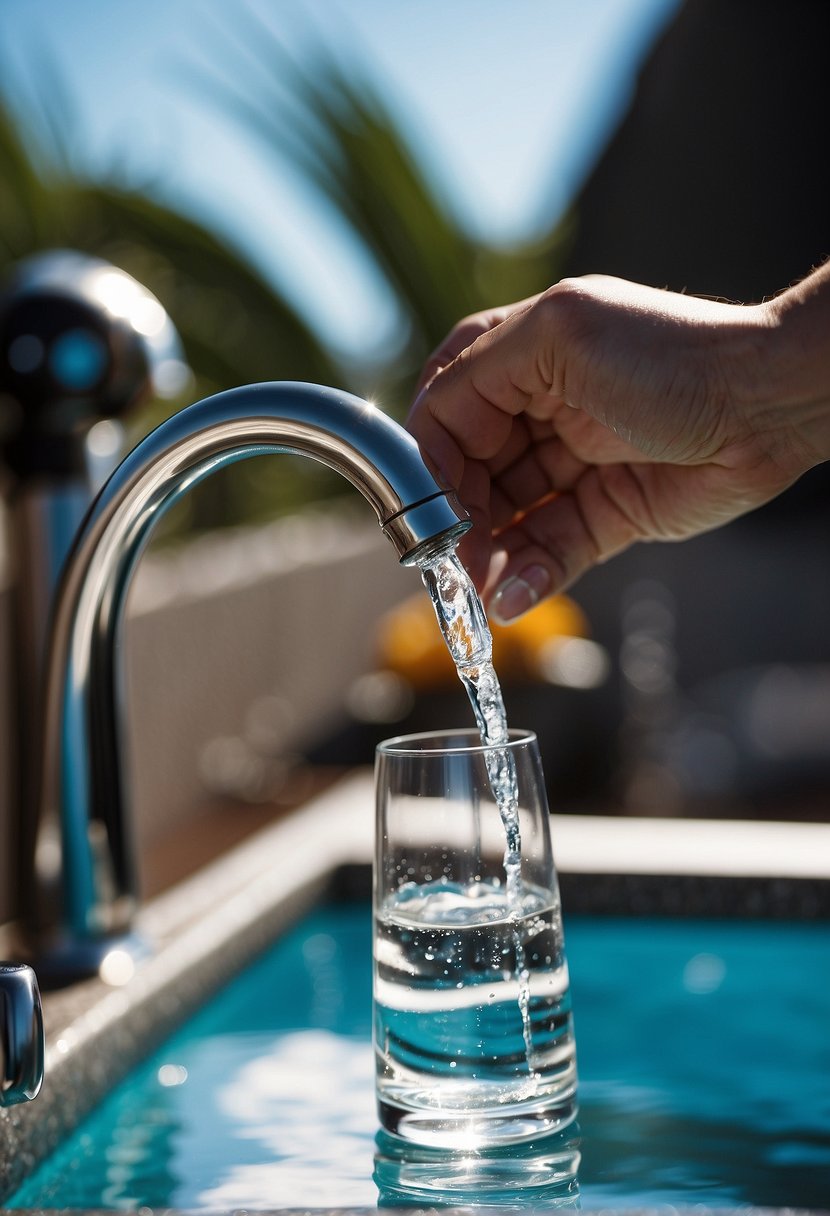
Can babies drink tap water in Spain?
Babies can drink tap water in Spain as it’s perfectly safe due to how it’s treated. That said, you might want to take extra steps for infants, especially if you’re visiting Spain meaning they may not be used to the water compared to home. Boiling the water first can help to ensure its purity.
Spanish tap water is treated and disinfected before it reaches the tap, making it potable for most. However, babies have sensitive systems, so it’s important to consult with a pediatrician before giving them tap water anywhere foreign – even if the water is, in theory, safe and meets all standards, as is the case here.
Can I use tap water to cook in Spain?
Yes, you can use tap water to cook in Spain. It’s considered safe for consumption, including for cooking purposes – in fact, some say that the water actually enhances the taste of some food. In terms of safety though, the water quality meets stringent EU standards, so you’re in good hands.
For example, in Valencia, the water is very hard which can affect the taste when drinking it straight from the tap. However, some people say that this high mineral content is what gives paella (which is from Valencia) it’s great taste – so the Spanish water is an advantage here!
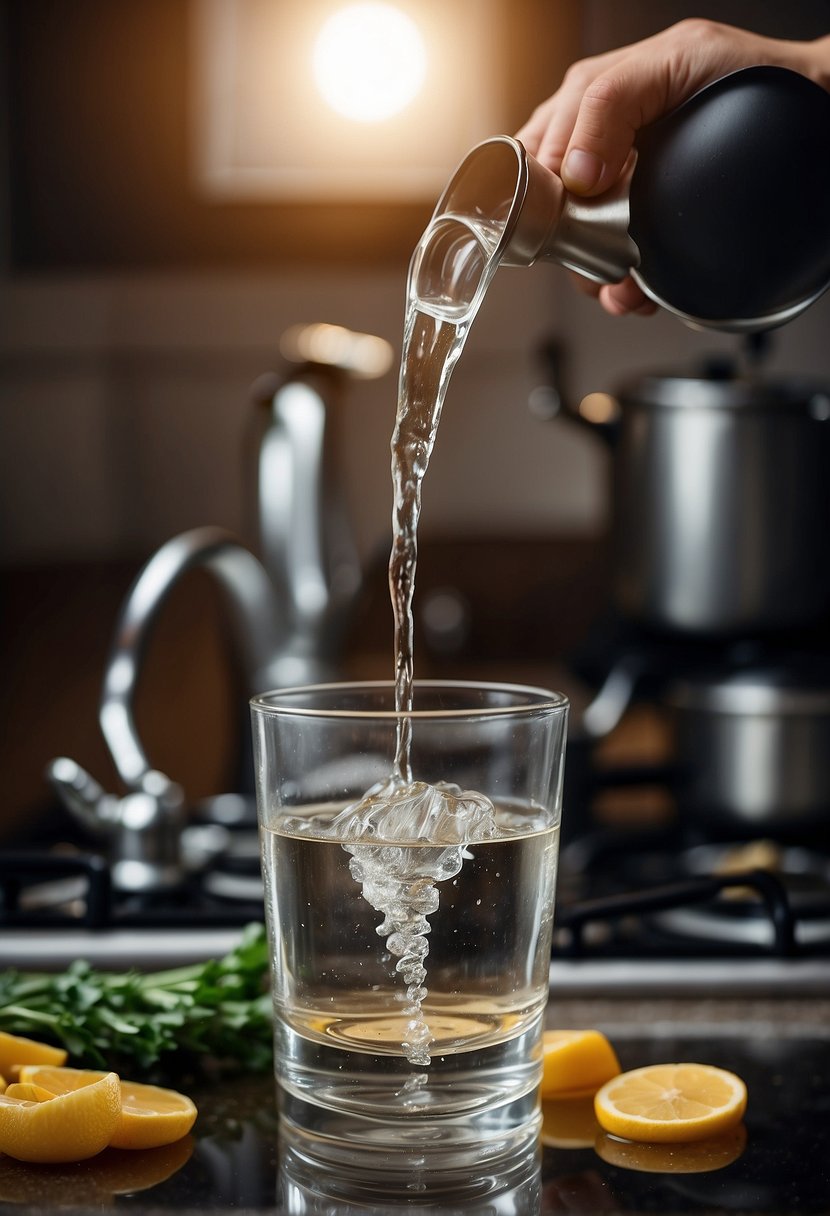
Tap water in most cities and towns across Spain is treated and disinfected to eliminate bacteria and impurities, making it safe to use directly from the tap for cooking. You might find that the taste varies from region to region due to different mineral contents, but this isn’t usually a concern for cooking.
Of course, depending on what you’re cooking, you may end up boiling the tap water anyway, like it you plan to use it for pasta or soup. Boiling can remove any residual chlorine taste and ensure the water is thoroughly sterilized, even though it’s not at all necessary here from a health standpoint.
In case you’re sensitive to taste, consider using a water filter jug to remove any remaining odors or flavors from the tap water before cooking.
Can I brush my teeth with tap water in Spain?
Yes, you can brush your teeth with tap water in Spain. It’s considered safe to use for dental hygiene by local standards and international guidelines. You’ll find that locals and tourists brush their teeth with tap water daily without any adverse effects.
The quality of tap water in Spain is generally high due to strict regulations and modern filtration systems. Municipal water supplies undergo rigorous testing to ensure safety for consumption and use.
One possible exception is that if you’re in a very remote area, seek advice from locals or your accommodation on water safety. But otherwise, while it’s always better to be cautious, the tap water in Spain is almost always suitable for all your dental hygiene needs.
Can you drink Spain tap water in hotels?
Yes, you can drink tap water in hotels in Spain as it’s generally safe from a health perspective. The tap water across the country meets international water quality standards. However, the taste and mineral content can vary by region, which might not be to everyone’s liking.
In some hotels, you might find complimentary bottled water in your room. This doesn’t imply that tap water is unsafe – it’s often provided for guests’ convenience and taste preference.
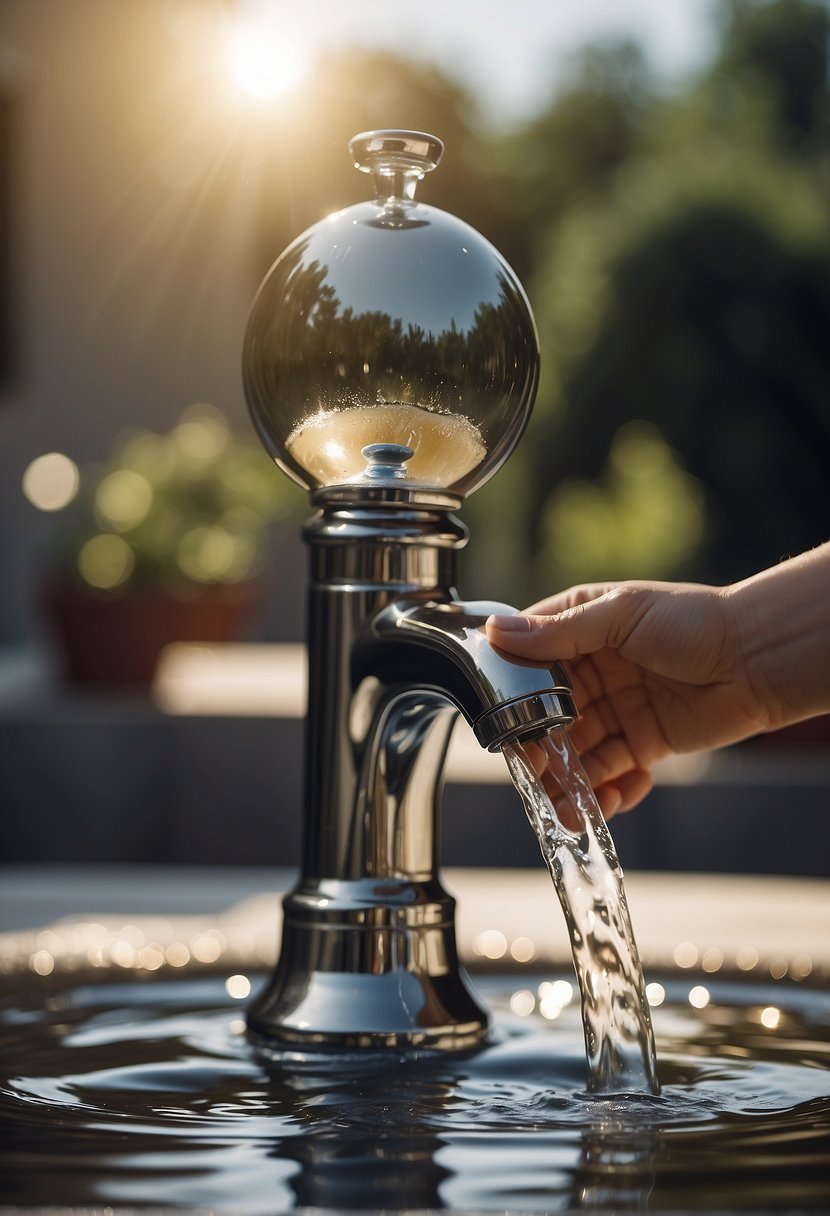
Filtering jugs or installing filters is also common in some hotels to improve the taste. If you’re unsure about the tap water, don’t hesitate to ask hotel staff – they’re there to help you and can confirm the safety and palatability of the water.
Remember, the safety of the water is not necessarily related to taste. Most guests drink the water without any issues, but if you have a sensitive stomach, sticking with filtered water might be a prudent choice.
Can you drink from water fountains in Spain?
Yes, you can drink from water fountains in Spain. The water is generally safe to drink, and locals use these fountains regularly, as they’re very convenient for staying hydrated on hot days. However, the taste and quality might vary from one city to another.
In many Spanish cities and towns, public water fountains are a common sight and provide potable water. The local municipalities are responsible for maintaining these fountains and ensuring the water quality meets health standards.

Barcelona, for instance, has a significant number of drinking fountains scattered throughout the city. These aren’t only functional but are often historical and ornate in design.
Always ensure that the water fountain is marked as potable, as some may be intended for decorative purposes only. If you’re uncertain, look for signs or ask a local.
It’s also wise to carry a reusable water bottle which you can refill throughout the day, ensuring you stay hydrated as you explore.
